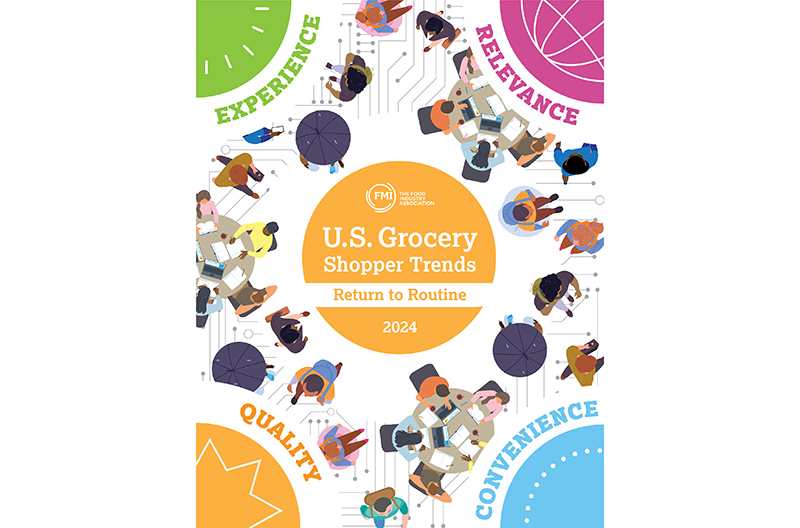Consumers are adapting their shopping strategies to include more flexibility as they attempt to control their grocery spending heading into the fall, according to the latest survey conducted by FMI – The Food Industry Association and The Hartman Group.
The report, “U.S. Grocery Shopper Trends: Return to Routine,” provides a crucial snapshot of how shoppers are finding value and evolving their grocery shopping habits in the current economic environment.
While shoppers report continued concerns regarding inflationary pressures on food and other consumer categories, 83 percent of Americans feel they have at least some control over their grocery spending.
Encouragingly, the U.S. Department of Agriculture’s midyear inflation data also found that inflation for most food categories fell below historical averages in the first half of 2024, providing further optimism for consumers. Additionally, the USDA projects food-at-home prices will increase by only a percentage point this year, while next year’s forecast dips below this benchmark significantly to a 0.7 percent anticipated increase for 2025.
“Shoppers report that one of the few parts of their household budgets they can control is their grocery spending and that through taking advantage of deals, promotions or shopping around, they continue to find value,” said Leslie G. Sarasin, president and CEO of FMI.
“While we understand shoppers’ concerns about the price of food on store shelves, our U.S. Grocery Shopper Sentiment Index shows consumers appreciate the ability to find value in their grocery shopping and continue to enjoy grocery shopping, a trend we expect to continue as food inflation cools.”
[RELATED: FMI Honors State Association Execs With Public Affairs Award]
Consumers continue to say their primary store for purchasing food does an excellent job of meeting their needs, with 79 percent of shoppers reporting that getting a “good value” when grocery shopping is their top priority. Shoppers report their average weekly household grocery spending has held steady during the past 18 months ($163). In addition, 63 percent of shoppers say they continue to look for deals and adjust their mix of food stores, products and brands to manage their expenses.
Furthermore, grocery shoppers noted a shift in spending habits due to heat waves affecting every part of the country and extreme weather events this summer. During that time, grocery budgets largely increased for American families, as parents were more likely to stock up on necessities than if the weather were more temperate.
FMI’s “U.S. Grocery Shopper Trends: Return to Routine” survey also revealed:
- Shoppers rate their primary store 8.0 out of 10 in terms of meeting their needs.
- Sixty-five percent of shoppers noticed higher than normal temperatures this summer, with only 9 percent associating food shortages with the extreme weather.
- Sixty-nine percent of consumers say they are very or extremely concerned with retail food inflation.
About FMI
As the food industry association, FMI works with and on behalf of the industry to advance a safer, healthier and more efficient consumer food supply chain. FMI brings together a range of members across the value chain to amplify the collective work of the industry.

